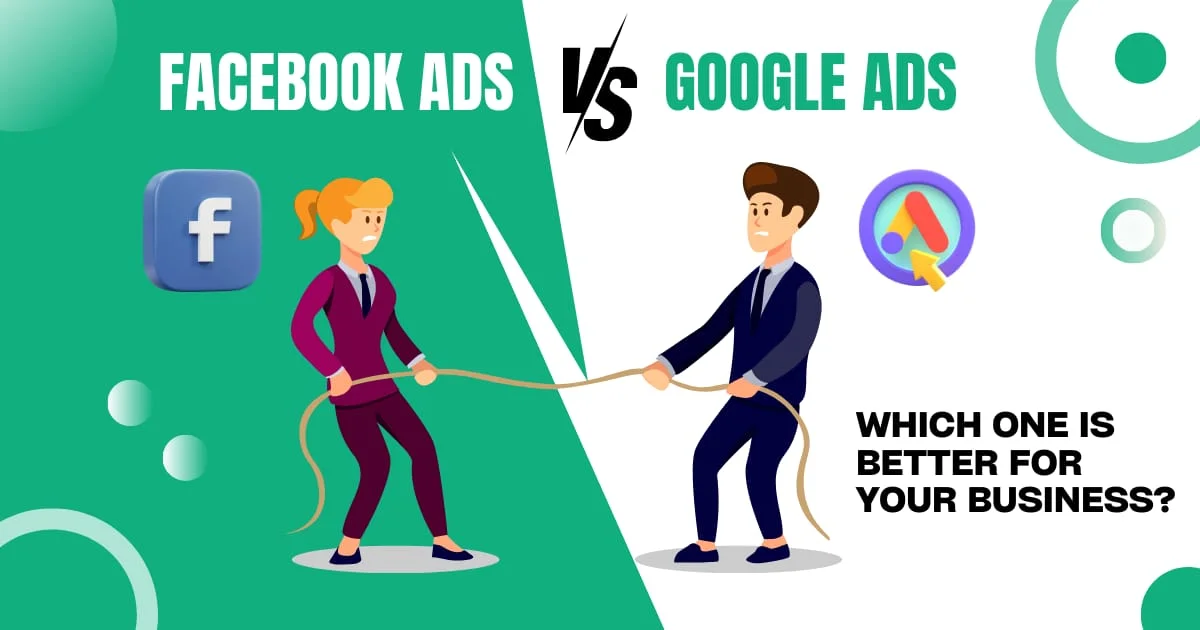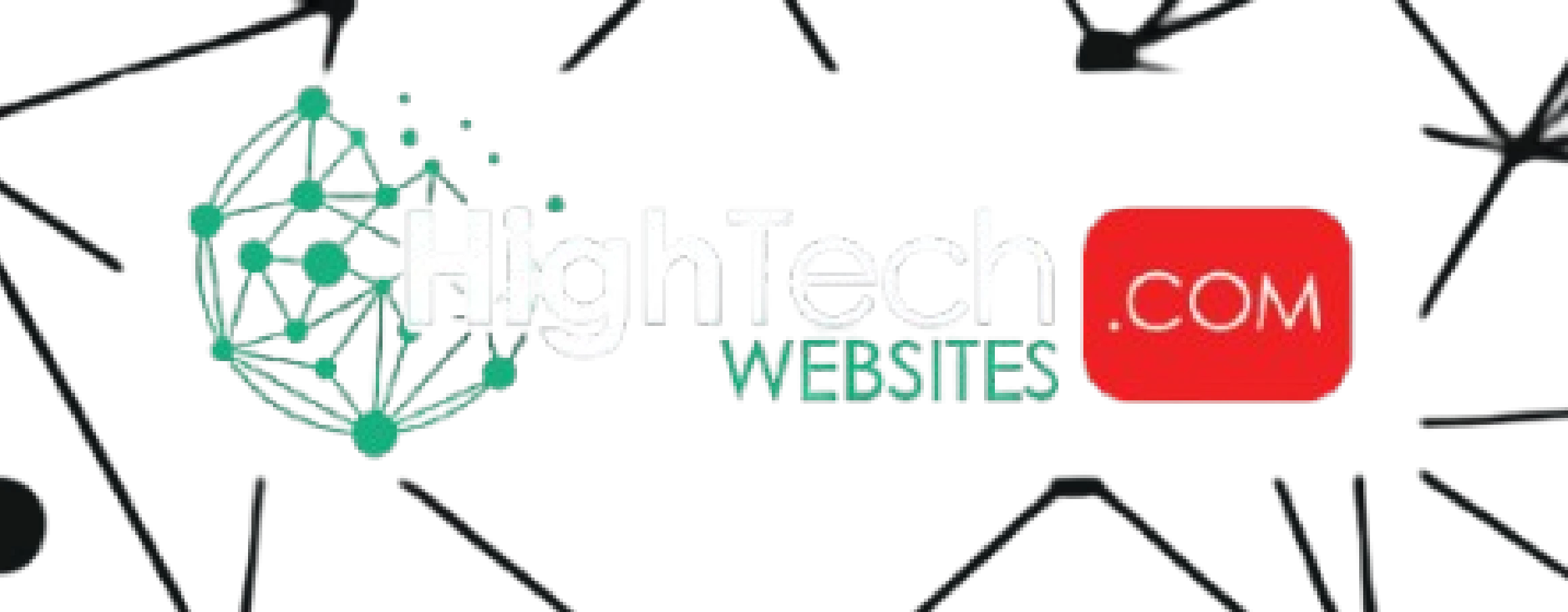Hightech Website 2025-03-17
Google Ads vs. Facebook Ads: Which One is Better for Your Business?

Google Ads vs Facebook Ads: Which is Better for Your Business?
Digital advertising is a crucial component of online marketing, and businesses often struggle to choose between Google Ads and Facebook Ads. Both platforms have unique advantages, making it essential to understand their differences to make an informed decision. HighTech Websites, a leader in digital marketing services and Google Ads management, explores the strengths, targeting options, and return on investment (ROI) of these two advertising giants. This article incorporates top-searched keywords in California, such as SEO services, online advertising, PPC advertising, and social media marketing, to ensure a comprehensive analysis.
1. Overview of Google Ads and Facebook Ads
Google Ads
Google Ads operates on a pay-per-click (PPC) model, where businesses bid on keywords to appear in search results. It offers:
- Search Ads (text-based ads appearing in Google search results).
- Display Ads (banner ads on websites across Google’s network).
- Shopping Ads (product-based ads for e-commerce stores).
- YouTube Ads (video-based advertising).
- Remarketing Ads (targeting users who have previously visited a website).
Google Ads is ideal for businesses focused on search engine optimization (SEO), high-intent leads, and immediate visibility.
Facebook Ads
Facebook Ads works on a cost-per-click (CPC) or cost-per-thousand-impressions (CPM) model, enabling businesses to run:
- Image Ads (static graphics with ad copy).
- Video Ads (short-form or long-form promotional content).
- Carousel Ads (multiple images or videos in a single ad).
- Lead Ads (designed to collect customer information without leaving Facebook).
- Story Ads (full-screen mobile experiences on Facebook and Instagram).
Facebook Ads is perfect for social media marketing, content marketing, and brand awareness campaigns.
2. Targeting Options: Who Can You Reach?
Google Ads Targeting
Google Ads primarily uses keyword-based targeting with additional refinements like:
- Demographics (age, gender, income level).
- Device and location targeting.
- Remarketing lists for search ads (RLSA).
- Custom Intent Audiences (users searching for specific products).
- Lookalike Audiences based on past visitors.
Google Ads is highly effective for direct response marketing because it targets users actively searching for products or services.
Facebook Ads Targeting
Facebook Ads offers interest-based targeting, making it ideal for brand engagement. Its features include:
- Behavioral targeting (purchase history, app activity).
- Custom Audiences (retargeting website visitors).
- Lookalike Audiences (targeting users similar to existing customers).
- Demographics and psychographics.
- Engagement-based targeting (likes, shares, and follows).
Facebook Ads is best for awareness and engagement-driven campaigns, making it popular among branding services and content marketing experts.
3. Cost and ROI Comparison
Google Ads Costs & ROI
- The average cost per click (CPC) for Google Ads ranges between $1 to $7, depending on competition.
- Google Ads provides a high ROI for high-intent searches (e.g., “best web design company” or “affordable web design California”).
- Industries like e-commerce, software solutions, and digital marketing benefit from Google Ads due to its conversion-driven nature.
Facebook Ads Costs & ROI
- Facebook Ads generally have a lower CPC, around $0.50 to $2.50.
- Facebook excels at brand exposure and audience engagement, leading to long-term business growth.
- E-commerce solutions, online reputation management, and video production services thrive on Facebook’s visual-driven platform.
4. Pros and Cons of Each Platform
Google Ads Pros
- High-intent audience – Users are actively searching for solutions.
- Better conversion rates – Ideal for lead generation and PPC advertising.
- Wide reach – Access to millions of daily search queries.
- Diverse ad formats – Text, display, video, and shopping ads.
Google Ads Cons
- Expensive for competitive industries – High CPC for legal, finance, and tech industries.
- Requires constant budget monitoring – Competitive keywords can drain budgets quickly.
Facebook Ads Pros
- Strong audience engagement – Great for content marketing and branding services.
- Lower advertising costs – More affordable than Google Ads.
- Powerful visual storytelling – Best for video marketing and social media marketing.
- Advanced audience targeting – Behavioral insights for personalized ads.
Facebook Ads Cons
- Lower purchase intent – Users may not be actively looking for products.
- Algorithm changes – Facebook’s evolving algorithm affects ad reach and effectiveness.
5. Which One is Better for Your Business?
Best for Immediate Conversions: Google Ads
- If your goal is direct sales, lead generation, or high-intent traffic, Google Ads is the best choice.
- Ideal for businesses in SEO services, web design, and PPC advertising.
Best for Brand Awareness: Facebook Ads
- If you want to build brand loyalty, engage audiences, and nurture leads, Facebook Ads is better.
- Perfect for businesses in graphic design, content marketing, and online reputation management.
6. The Power of Combining Both
Many successful businesses integrate Google Ads and Facebook Ads for a holistic digital marketing strategy. HighTech Websites recommends:
- Using Google Ads for high-intent searches and immediate conversions.
- Running Facebook Ads for audience engagement and retargeting.
- Combining both platforms to maximize reach and conversions.
Conclusion
Both Google Ads and Facebook Ads have unique strengths, making them valuable in digital marketing. Choosing the right platform depends on business goals, budget, and audience intent. HighTech Websites specializes in custom web development, digital marketing services, and PPC advertising, ensuring businesses in California make the most of their advertising budgets. By leveraging both platforms strategically, businesses can achieve higher visibility, engagement, and revenue growth in 2025 and beyond.


